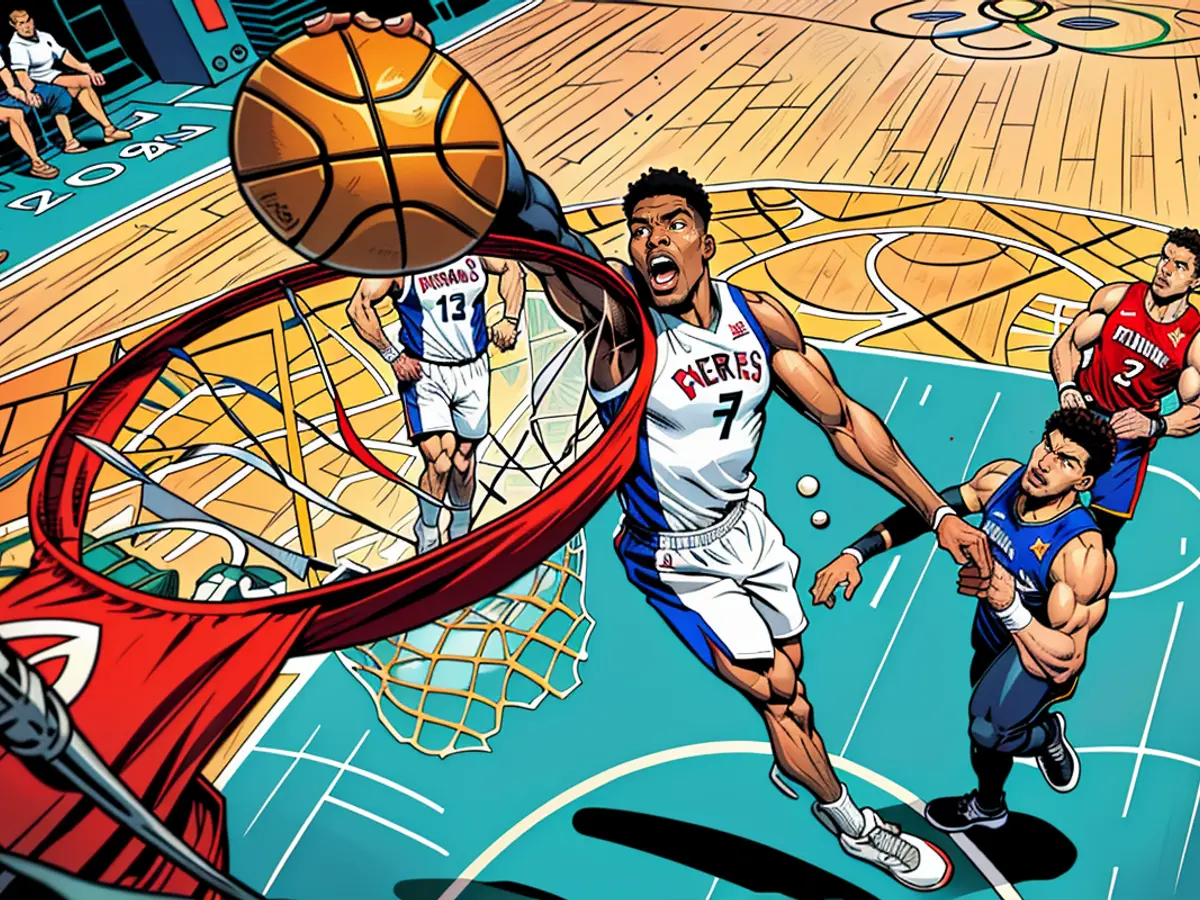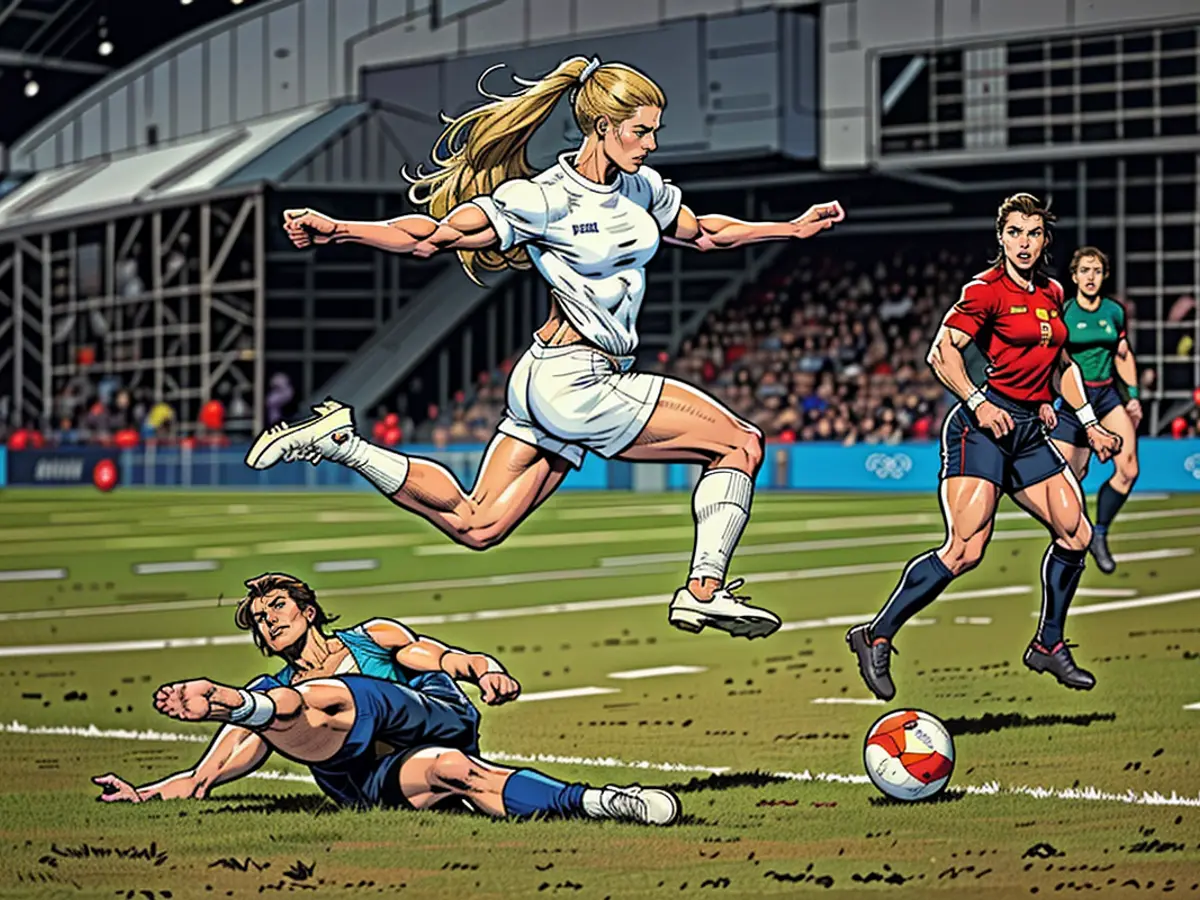How to think like an Olympian and develop a winner’s brain
“A winner’s brain is not about a quick fix. You have to nurture your brain and take care of it,” said psychologist Jeff Brown, an assistant clinical professor at Harvard Medical School and coauthor of “The Winner’s Brain: 8 Strategies Great Minds Use to Achieve Success.”
“You have to feed it good fats, like omega-3’s. Your brain is the 3 pounds that you don’t want to lose,” said Brown, who is the sports psychologist for the Boston Marathon.
“You have to move it — brain function improves if you’re moving. That’s one of the best things that you can do for your brain,” he said. “And you have to sleep it — sleep is critical to memory consolidation and learning.”
Mental strength, focus and resilience don’t come without effort, even to the world’s top athletes. Researchers have studied Olympians for decades and found they share some common traits, habits and qualities that you too can use to develop a winner’s mindset.
View stress as positive
Many Olympians, especially the extremely successful ones, view stress as a challenge instead of something they should fear, said sports psychologist Dan Gould, former director of the Institute for the Study of Youth Sports and professor emeritus of kinesiologyat Michigan State University.
“We call it a stress mindset, or your worldview of stress,” said Gould, who has consulted for the US Olympic Committee and the United States Tennis Association. He has studied Olympians for decades.
“Research on high-level swimmers in England, who were all capable, found the swimmers who performed best viewed stress as more facilitative versus debilitative,” he said.
“Any elite athlete knows there’s going to be pressure, and top athletes have learned to view it as a challenge, either by trial and error or by working on mental training such as staying in the present. That has a lot of implications for everybody,” Gould said.

A famous experiment published in a January 1998 report looked at how people viewed stress and found the risk of premature death rose by 43% for people who viewed stress negatively. Those who viewed stress as a positive had the lowest risk of death of anyone in the study, even lower than people reporting very little stress.
“The researchers concluded that it wasn’t stress that was killing people. It was the combination of stress and the belief that stress is harmful,” psychologist Kelly McGonigal told CNN in a prior interview.
“The researchers estimated that over the eight years they conducted their study, 182,000 Americans may have died prematurely because they believed that stress was harming their health,” said McGonigal, who discussed the study in her book “The Upside of Stress: Why Stress Is Good for You, and How to Get Good at It.”
Learn to bounce back
Many of the most mentally tough and resilient athletes have a history of overcoming adversity in their past, Gould said. It can be a hardship, illness or even a loved one dying.
“It’s really hard to build resilience unless you’ve been challenged,” Gould said. “If I protected you during your whole life and never let you figure things out for yourself, you’re bound to be stressed when you hit an obstacle.”
Simone Biles is a good example of an athlete who faced very public adversity and bounced back, Brown said. She pulled out of team finals in the 2020 Tokyo Games due to the “twisties,” when her brain and body stopped seamlessly communicating as they had done in countless nearly perfect routines in practice.
“Anyone can get overwhelmed,” Brown said. “Resilience is the piece of us that allows us to get up every time we’re knocked down. I think Simone has shown she really handles stress well and is a lot more resilient than people who never ran into that wall.”

The connection between adversity and peak mental performance is so strong, in fact, that today’s sports performance coaches use “pressure training” to help their athletes prepare for competition, Gould said.
“With the athlete’s permission, the trainer ratchets up the pressure, almost like I’m giving you the disease of fear and then letting your antibodies build up psychologically,” Gould said. “The trainer then puts the athlete into increasingly more challenging situations where they need to trigger those antibodies.”
The goal: to practice all the ways a mental or physical performance can go wrong and then fix them, Brown said.
“Screwing up on purpose develops an inner voice that can immediately say ‘OK, I’ve made this mistake before. Here’s how to fix it.’ In highly functioning athletes, the ability to bounce back has to be just as good as the ability to perform,” he said.
Banish self-doubt
There is no room for doubt in the minds of Olympic athletes, according to Gould.
“They have to believe they’re capable of performing well or they have already given the competition the advantage,” he said. “They have to go into the event with complete confidence.”
Olympians often feel supremely self-assured because they have spent hundreds or even thousands of hours practicing their performance and learning from failures along the way.

“That’s what the brain requires to do well, because you’re creating those neuronal pathways that allow you to be precise. It’s sort of a muscle memory for the brain,” Brown said.
There are a number of tools athletes — and their coaches — can use to develop mental resilience such as self-talk, imagery, visualization and mindfulness, experts say.
“Olympians do mindfulness training, where they try not to judge or worry, but just stay in the present moment,” Gould said. “They might have certain self-talk phrases, like ‘Trust my training,’ or ‘I’ve been in these tough situations before, follow the plan.’
Another tool is visualization, Gould said. Olympic skiers walk the course, planning out their moves, then hone those to perfection in practice before visualizing that flawless performance just before the event.
“You teach yourself to believe that due to repetition and always improving within yourself — not against the competition, but within yourself,” he said.
Regulate your emotions
Emotional regulation is as important as physical or mental preparation, Gould said.
“All of us have a set of emotions we feel are important for us to perform our best: I’m confident, but not overconfident. I’m anxious, but it’s a good anxiety. Maybe I’m a little fearful, but it’s not overwhelming,” he said.

“There’s an optimal mixture of those emotions that allows you to perform at your peak, but you need a thermostat — a way to dial those emotions up or down when necessary.”
A tried-and-true technique to calm oneself is centered on deep breathing, Gould said, but there are other tactics that can be just as effective. Some athletes put a rubber band on their wrist, and snap it when they want to recenter themselves, which is a form of grounding, he said.
He recalls studying one of the women’s summer Olympic soccer teams, in which players came up with code words to help each other regulate their emotional thermostats.
“The team came up with the words fire and ice,” Gould said. “Players would yell to other players ‘Fire!’ if they thought the team needed to get more emotionally charged. When a player was in danger of getting a penalty, they would yell ‘Ice!’ to calm them down.”
Practice until it’s routine
Not only do prime athletes practice until the physical skill becomes almost an innate physical response, but they often have specific rituals they do before each event, experts say.
“Routines are really important,” Gould said. “They might warm up the same way, they might always imagine themselves doing the event perfectly, some even tell jokes until 60 seconds before the event.
“Athletes who perform well, especially under pressure, stick to their routine. Athletes who don’t perform well, for some reason, deviate from that routine,” he said.

It’s not just physical readiness that needs a routine, Gould added. Performance coaches will often help athletes prepare for any emergencies or delays that might occur before a performance.
“What’s your stretch routine? In other words, if there is a delay because of weather, how do you hold your focus or come back to it? What’s your shrink routine? If there was a traffic jam and you showed up late to the venue, for instance, how would you prepare in a shorter period of time?
“In that case, the athlete might stretch on the bus. If they usually do seven exercises, here are the three I need to do for sure,” Gould explained. “And then they’ll do things to say calm, such as deep breathing and certain self-talk phrases.”
Stay focused on the process
Top performers can’t afford to be distracted when it’s time for the big event. Again, it’s important to identify any triggers you might face and experience those during practice until they fade into the background.
“Athletes have to be prepared for distractions such as crowd noise, someone laughing, even a joke told nearby,” Gould said. “We’ll introduce distractions during training, such as crazy loud noises over the loudspeakers, to allow them to practice staying focused and emotionally regulated.”

Some people call that “being in the zone,” where everything but the task at hand disappears.
“When you are facing one of the most important events of your life, top athletes don’t focus on the outcome, they focus on the process needed to reach their goal,” Gould said.
For example, an Olympic swimmer would focus on the techniques needed to finish in world record time, such as the number of strokes and the position of their arms in the water.
“I’m not saying they’re not competitive, but when the stress is hitting, they focus on what they can control, which is process they need to accomplish to reach that goal.”
After nurturing and taking care of the brain, it's essential to maintain its health and promote wellness. This can be achieved by feeding it good fats, such as omega-3's, and moving it regularly to improve brain function. Moreover, getting enough sleep is crucial for memory consolidation and learning, contributing significantly to overall brain health and wellness.








